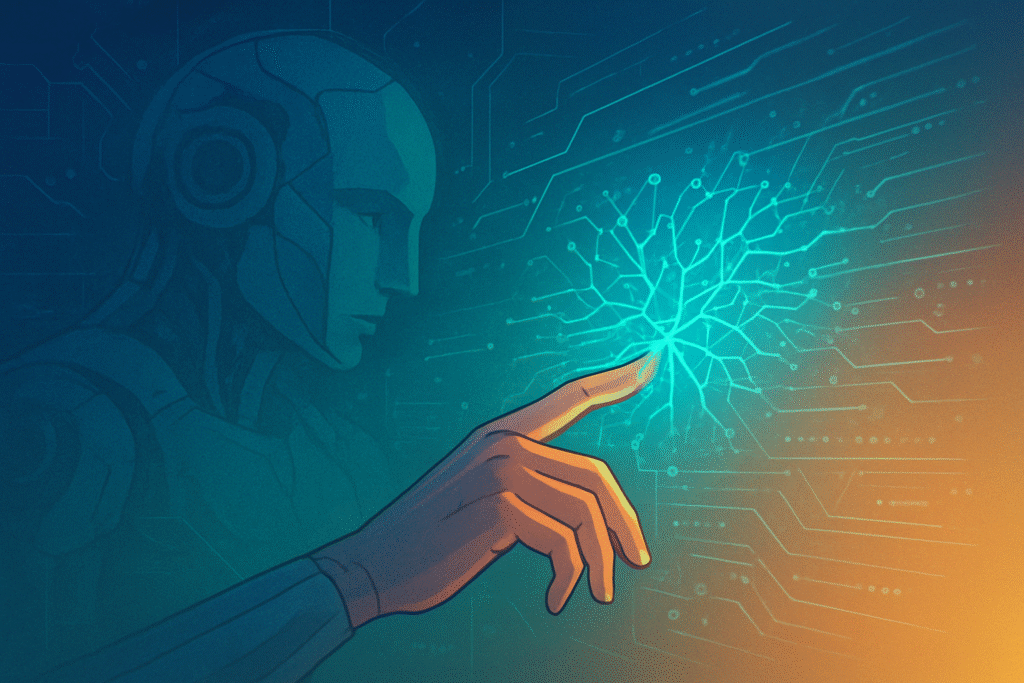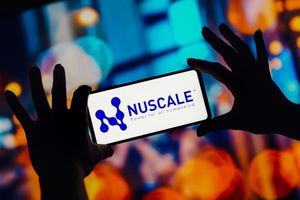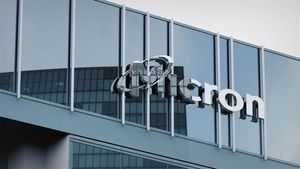
A striking new report from Forrester Research reveals a sobering reality for businesses that enthusiastically embraced AI as a solution for workforce reduction: a significant 55% of employers surveyed now regret laying off staff in anticipation of artificial intelligence capabilities. This widespread remorse signals a critical misstep in corporate AI adoption strategies, highlighting a premature and often misguided belief in AI's immediate capacity to fully automate complex human roles. The findings serve as a stark warning, forcing companies to re-evaluate their approaches to AI integration, workforce planning, and the irreplaceable value of human expertise.
The immediate significance of Forrester's findings cannot be overstated. It exposes a chasm between the hyped promise of AI and its current practical applications, prompting a necessary recalibration of expectations across the tech industry. As companies grapple with the unforeseen consequences of their layoff decisions, the report forecasts a wave of rehiring, a strategic delay in AI spending, and a renewed emphasis on reskilling and upskilling human workers. This pivotal moment demands a more thoughtful, human-centric approach to AI, moving beyond the narrative of replacement to one of augmentation and collaborative intelligence.
The Unfulfilled Promise: Why AI-Driven Layoffs Backfired
The regret expressed by over half of businesses stems from a confluence of factors, primarily rooted in an overestimation of AI's current capabilities and a profound lack of strategic planning. Many companies made swift layoff decisions based on the future potential of AI, rather than its present operational reality. Research cited by Forrester indicates that even advanced AI agents currently achieve only a 58% success rate on single-step tasks, falling far short of the efficacy required to seamlessly replace roles involving multi-faceted responsibilities, critical thinking, and nuanced human interaction. This technical limitation became a significant hurdle for organizations expecting immediate, comprehensive automation.
Furthermore, a pervasive absence of comprehensive planning exacerbated the issue. Businesses often failed to adequately define AI's precise role within their existing workflows or to understand the extensive preparation required for its effective integration. The impulse to replace employees with AI led to an unforeseen and detrimental loss of invaluable human expertise—institutional knowledge, client relationships, and specialized skills that AI simply cannot replicate. This "brain drain" crippled operational efficiency and innovation in ways many leaders did not anticipate. In some instances, AI appears to have been used as a convenient pretext for workforce reductions that were, in reality, driven by broader macroeconomic pressures or pre-existing workforce optimization goals, further muddying the waters of genuine AI-driven transformation.
The technical specifications and capabilities of AI, while advancing rapidly, are still largely in the realm of augmentation rather than wholesale replacement for many complex roles. While AI excels at repetitive, data-intensive tasks and can significantly enhance productivity, it currently lacks the nuanced understanding, emotional intelligence, and adaptive problem-solving skills inherent in human workers. This fundamental difference between AI's current state and its perceived potential is at the heart of the regret. Initial reactions from the AI research community and industry experts have largely affirmed this perspective, cautioning against the premature deployment of AI for wholesale job elimination and advocating for a more measured, ethical, and strategically sound integration that prioritizes human-AI collaboration.
Repercussions and Realignments: Impact on the AI Industry
Forrester's findings have significant competitive implications for major AI labs, tech companies, and startups alike. Companies that rushed into AI-driven layoffs are now facing operational bottlenecks and the costly prospect of rehiring, often at a premium, or resorting to less desirable alternatives. This scenario is expected to trigger a wave of rehiring in 2026, with many roles previously eliminated now needing to be refilled. However, Forrester predicts much of this rehiring will involve lower-wage human workers, potentially through offshoring or outsourcing, leading to the rise of "ghost workers" who perform tasks that AI isn't yet capable of handling. This could reignite offshoring practices as companies seek to mitigate costs while restoring lost human capacity.
Conversely, companies that adopted a more cautious, augmentation-focused approach to AI stand to benefit. These businesses, which prioritized reskilling and upskilling their existing workforce to leverage AI tools, are now better positioned to harness AI's true value without suffering the loss of critical human capital. Enterprises are now expected to delay a quarter of their AI spending into 2027, as they struggle to identify tangible value from the technology. This shift will favor AI solution providers that offer clear, demonstrable ROI through augmentation tools rather than those promising unrealistic levels of automation and replacement. Market positioning will increasingly hinge on offering AI solutions that empower human workers, enhance existing services, and integrate seamlessly into established workflows, rather than those that advocate for radical, disruptive workforce overhauls. Companies like Alphabet (NASDAQ: GOOGL), Microsoft (NASDAQ: MSFT), and Amazon (NASDAQ: AMZN), with their broad portfolios of AI services, will need to emphasize the collaborative and augmenting aspects of their offerings to align with this evolving market sentiment.
The impact on HR functions is also profound. While HR departments themselves are predicted to face staffing cuts, potentially by as much as half, they are simultaneously tasked with maintaining service levels using AI tools and, more critically, guiding their organizations through this complex AI transformation. This necessitates a strategic pivot for HR leaders, who must now champion reskilling initiatives and foster a culture that values human-AI collaboration. The potential for employee disengagement, stemming from the perceived misuse of AI in workforce reductions and the subsequent rehiring at lower rates, could foster a "deepening culture energy chasm," posing a significant challenge to organizational cohesion and productivity.
A Broader Reckoning: AI's Place in the Workforce Landscape
Forrester's report serves as a crucial reality check within the broader AI landscape, signaling a maturation of the discourse surrounding artificial intelligence. It underscores that while AI is a transformative technology, its integration into the workforce requires far more nuance, foresight, and ethical consideration than initially assumed. This finding fits into an evolving trend where the initial hype surrounding AI's disruptive potential is giving way to a more pragmatic understanding of its role as a powerful tool for augmentation rather than a universal replacement.
The impacts extend beyond mere operational efficiency; they touch upon employee morale, corporate culture, and the very definition of work. The regret over layoffs highlights the significant operational setbacks and morale issues that arise when human expertise is undervalued or prematurely dismissed. There are also potential concerns surrounding the ethical implications of "ghost workers"—a hidden workforce performing tasks that AI was supposed to automate, raising questions about labor practices, transparency, and fair compensation. This scenario evokes comparisons to previous technological shifts where human labor was initially displaced, only to find new forms of engagement, albeit sometimes under less favorable conditions.
This moment can be compared to earlier AI milestones where overzealous predictions were tempered by practical realities. Just as previous waves of automation didn't eliminate human jobs en masse but rather reshaped them, current AI is proving to be a catalyst for job transformation rather than outright destruction. The report reinforces the idea that critical thinking, creativity, emotional intelligence, and complex problem-solving remain uniquely human attributes, indispensable even in an increasingly AI-driven world. The broader significance lies in the imperative for businesses to adopt a balanced perspective, recognizing AI's strengths while respecting the enduring value of human capital.
The Path Forward: Augmentation, Reskilling, and Strategic Integration
Looking ahead, the near-term will undoubtedly see a significant focus on rehiring and a substantial increase in learning and development budgets across industries. Companies will invest heavily in reskilling and upskilling programs to ensure their existing workforce can effectively collaborate with AI tools. Forrester predicts that 80% of business leaders are now considering reskilling employees, with 51% identifying it as strategically important. This proactive approach aims to bridge the gap between AI's capabilities and organizational needs, fostering a workforce that is AI-literate and capable of leveraging these new technologies for enhanced productivity.
Long-term developments will likely center on the refinement of human-centric AI strategies, where the emphasis remains firmly on augmentation. AI will increasingly be designed and deployed to empower human workers, automate tedious tasks, and provide intelligent assistance, thereby freeing up human talent for more creative, strategic, and interpersonal endeavors. The evolution of HR will be critical, with departments transforming into strategic partners focused on talent development, change management, and fostering a culture of continuous learning in an AI-integrated environment.
However, significant challenges remain. Bridging the gap between AI's promise and its practical reality will require ongoing research, ethical development, and transparent communication. Managing employee morale and preventing a "deepening culture energy chasm" will demand empathetic leadership and clear communication about AI's role. Experts predict that AI will primarily augment 80% of existing roles, rather than replacing them entirely. In fact, 57% of those in charge of AI investment anticipate that it will lead to an increase in headcount, not a decrease, as new roles emerge to manage, train, and leverage AI systems. The future of work will not be about humans versus AI, but rather humans with AI.
A New Era of Thoughtful AI Adoption
Forrester's revelation that 55% of companies regret AI-related layoffs marks a pivotal moment in the history of artificial intelligence adoption. The key takeaway is clear: hasty, ill-conceived workforce reductions based on an overestimation of AI's current capabilities are detrimental to operational efficiency, employee morale, and ultimately, a company's bottom line. Strategic planning, a deep understanding of AI's augmenting role, and a commitment to investing in human capital are paramount for successful AI integration.
This development signifies a crucial shift from the initial speculative hype surrounding AI to a more pragmatic, grounded approach. It serves as a powerful reminder that while AI is a revolutionary technology, human expertise, adaptability, and critical thinking remain irreplaceable assets. The long-term impact will be a recalibration of corporate strategies, emphasizing human-AI collaboration, continuous learning, and ethical considerations in technological deployment.
In the coming weeks and months, watch for trends in rehiring, increased investment in employee reskilling and upskilling programs, and a greater emphasis from AI solution providers on tools that demonstrably augment human capabilities. This period will define how businesses truly harness the power of AI—not as a replacement, but as a powerful partner in a future where human ingenuity remains at the core of innovation.
This content is intended for informational purposes only and represents analysis of current AI developments.
TokenRing AI delivers enterprise-grade solutions for multi-agent AI workflow orchestration, AI-powered development tools, and seamless remote collaboration platforms.
For more information, visit https://www.tokenring.ai/.






